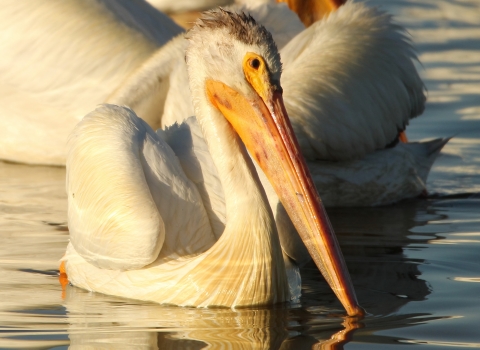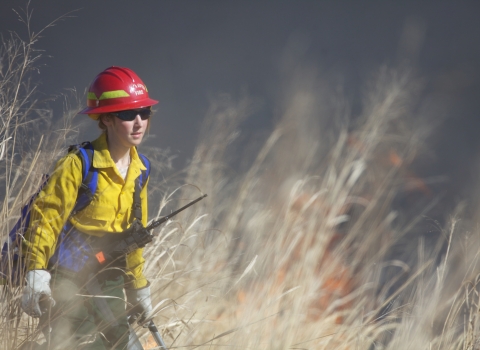No longer threatened with extinction, today, the U.S. Fish and Wildlife Service is proposing to remove the Puerto Rican boa from the Federal List of Endangered and Threatened Wildlife (List). This proposed action is based on the best available scientific and commercial data which indicates that the species has recovered and no longer meets the definition of an endangered or threatened species under the Endangered Species Act (ESA).
“Partnerships are the key to the success of the Endangered Species Act,” said Leopoldo Miranda-Castro, the Service’s Regional Director. “The Commonwealth of Puerto Rico and many local conservation organizations and universities have played an important role over the last several decades, developing science and protecting habitats to sustain this native inhabitant of the island of Puerto Rico. A species that has been listed since the early 1970’s, we are excited to be sharing this success today.”
The Puerto Rican boa, a large nonvenomous snake native to Puerto Rico, is widely distributed across the island but not uniformly abundant. A nocturnal, tree-loving snake, the Puerto Rican boa is considered a habitat generalist and tolerates a wide variety of habitat types from coastal forests to wet karst and montane forests, along streams, forest and road edges, and within rural, suburban, and some urban areas. Cave systems are particularly important for this species because they provide prey and shelter. Puerto Rican boas generally feed on rats, mice, bats, lizards, birds, and frogs.
Originally listed as an endangered species in October 1970 under the Endangered Species Conservation Act of 1969, the Puerto Rican boa remained listed with the passage of the ESA in 1973, due to its decline in both population size and distribution as a result of widespread deforestation in the 1800s.
Since its listing, many Commonwealth and Federal laws have been implemented that provide protection for habitat in areas where the Puerto Rican boa is known to occur. As of 2018, approximately 16 percent of the island was designated as protected areas for conservation. The species has been documented in numerous protected areas across the island, like in El Yunque National Forest, the Río Abajo, Guajataca, Camabalache, Vega, and Maricao Commonwealth forests managed by the Puerto Rico Department of Natural and Environmental Resources, as well as within several of the lands managed by the Puerto Rico Conservation Trust through its unit Para La Naturaleza, like El Convento Caves Natural Protected Area.
Restoration and management of private and public lands that were historically impacted by deforestation, agriculture, and other human development activities have also helped contribute to improved habitat for the boa. These conservation efforts have increased available habitat and have positively contributed to the species current status.
Other factors that have positively influenced the status of the Puerto Rican boa include translocation efforts and outreach and education efforts that have increased awareness of the species and changed attitudes from persecution to protection.
The ESA requires the Service, in cooperation with the Commonwealth, to implement a monitoring program for not less than five years for all species that have been delisted due to recovery, referred to as post-delisting monitoring (PDM). These are activities that are undertaken to verify that a species delisted due to recovery remains secure from the risk of extinction after protections of the ESA no longer apply. The primary goal of PDM is to monitor the species to ensure that its status does not deteriorate, and if a decline is detected, to take measures to halt the decline so that proposing it as endangered or threatened is not again needed.
The Service will accept comments received or postmarked on or before September 12, 2022. Comments submitted electronically to the Federal eRulemaking Portal at http://www.regulations.gov must be received by 11:59 p.m. Eastern Time on the closing date. We must receive requests for public hearings, in writing, at the address shown in FOR FURTHER INFORMATION CONTACT by August 29, 2022.
This proposed rule and supporting documents are available at http://www.regulations.gov under Docket No. FWS-R4-ES-2021-0162.
For more information on this proposal, please visit our Frequently Asked Questions.
FOR FURTHER INFORMATION CONTACT: Edwin Muñiz, Field Supervisor, U.S. Fish and Wildlife Service, Caribbean Ecological Services Field Office. Email address: Caribbean_es@fws.gov. Mailing address: P.O. Box 491, Boquerón, Puerto Rico 00622. Telephone: (787) 405-3641. Persons who use a telecommunications device for the deaf (TDD) may call the Federal Relay Service at 800–877–8339.



